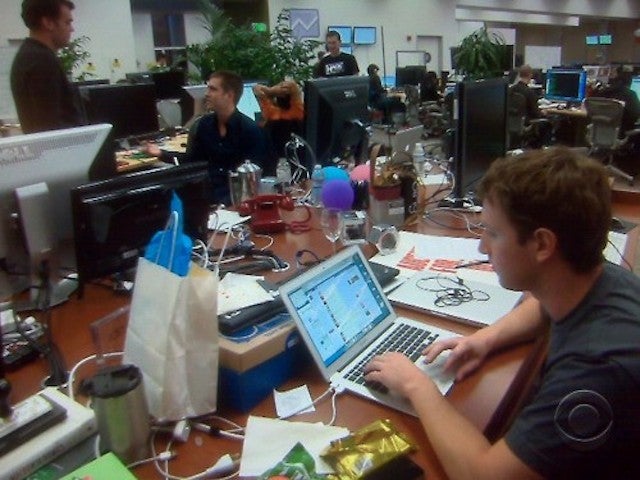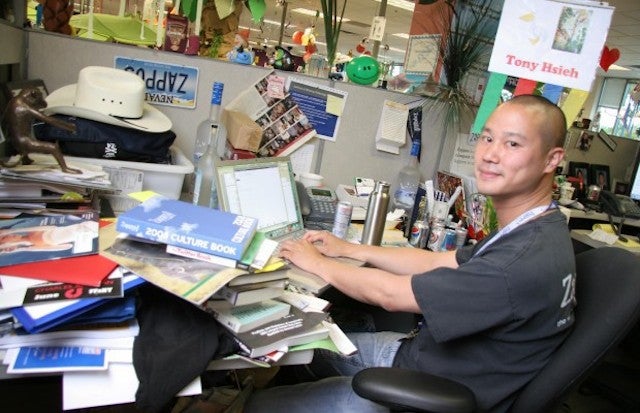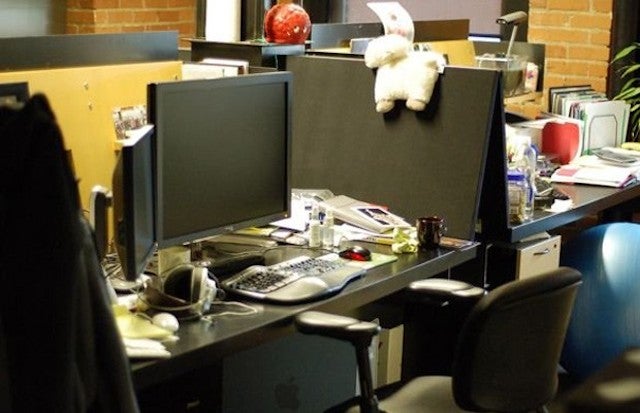2011,
December 19 this year marks our 52nd wedding anniversary, which my children and I still observe even though my husband, Novelist Wilfrido D. Nolledo (of But for the Lovers, Cadena de Amor and Other Short Stories, available at Amazon. com) has been gone for seven years. Ding, as he was known to family and friends, passed away barely completing his last novel, A Capella Dawn.
THE OTHER HALF OF ME
(in memory of Wilfrido D. Nolledo, author of But for the Lovers, E.P. Dutton, New York, 1970)
Beneath this mound of soil
lies the other half of me,
in wait for this self
still walking the ground
trekked together before, but
now dotted with only a pair of footprints.
I lay the roses upon the tombstone
in a ritual of love, and pray:
please God let him who loved
you continue to love you,
and you who loved him in his life
continue to love him evermore.
I sit awhile on the grass
the well of tears at last
comes unabated, unashamed as,
desolate, I speak to the other half of me,
retrieving images of the past,
the highs and lows of our together life:
the poetry we fed on that filled the soul
as our empty pouches laid concealed in the
richness of our dreams; the hurts we
unknowingly meted out to each other. What are
aches and pains for--that gnaw at layers and layers
of grit--if they cannot unearth the Phoenix in us?
Shared rage against inequity, shared agony
over the cauldrons of war, shared anguish
over injustice, shared dreams and hopes for peace.
Such passion and ecstasy, anger and humor--
all inextricably bound in the mingling
of life’s laughter and tears.
This self must go on through the motions of life
though not quite whole, not quite hale,
for the other half of me is gone.
(How strong she is, people say; if only they knew…)
Tasks must be finished, whatever the heavens drop;
but there is an end to every journey, I, too well know.
Little drops of rain moisten the soil on my other half;
the cold tomb looks up at the endless blue above,
and the earth sucks the tears of the va ulted sky.
I beg the other half of me, be patient, wait for the
Dispenser of Life to fill the tomb’s empty space by your side
and make the we of us complete again. - Blanca Datuin, 2004
2011,
December 19 this year marks our 52nd wedding anniversary, which my children and I still observe even though my husband, Novelist Wilfrido D. Nolledo (of But for the Lovers, Cadena de Amor and Other Short Stories, available at Amazon. com) has been gone for seven years. Ding, as he was known to family and friends, passed away barely completing his last novel, A Capella Dawn.
I usually tend to escape a revisit to the past as it brings back images both joyful and lonely. Was it Alfred Tennyson who said ""A sorrow's crown of sorrow is remembering happier times"? But I dug up recently this lovely letter from a dear friend while I was sorting old letters from Ding and from close friends. It's from Cora Bisogno, the former Cora Cloma, who was my maid-of-honor at my wedding. It was supposed to have been read during our celebration of our 40th wedding anniversary in 1999 when Ding was still up and about. Cora, however, got tied up with her public relations work in New York and could not come to share the day with us. So, she did the next best thing she could do: send us this letter to be read during the party celebration. Cora is a writer herself but like many of us in our circle of friends who were diverted to other occupations, strayed away from a writing career.
Here is her own recollection of my campus romance with Ding at the University of Santo Tomas in Manila when Ding, newly graduated from the College of Philosophy and Letters (Philet) and I, on the other hand, still a babe in the woods and poet wannabe, fresh from high school, met through a mutual college friend who submitted my first short story to Ding. Those were the years when male and female students went through separate corridors in our university but, strangely, met in co-ed classrooms. (When I think of it now, it really seems so useless, those separate corridors. I don't know if it's still done now.) Even stranger perhaps to outsiders is the fact that quite a few campus romances somehow bloomed and thrived in that university despite the strict rules of the Dominican priests. As a matter of fact, a favorite joke during one of our early reunions decades ago was the dictum that the Philet College, especially, was a happy hunting ground for the right mate. A few I can recall that ended at the altar were Recah Trinidad (to become the famous sportswriter and columnist) and Fe Lacsamana; Neal Cruz (now a long-time columnist/writer) and Marina Novenario; Meny Heernandez (who became a consul) and Yoly Canseco (now a retired GSP National Director); Writer Gerry Umengan and Vilma Dagasuan (to become a magazine editor); Ernie Franco and Cherry Santamaria, summa cum laude of her batch; Rey Vidal and Lou Hernandez; Tony Siddayao and Maricruz Prada; and Eli Molina and Nelly Balthazar; and of course, Wilfrido Nolledo and yours truly. Well, perhaps, our dean, the Rev. Alfredo Panizo, O.P., didn't do a good job guarding us; in fact, we considered him a consintidor and we loved him for it, of course. Ding and I actually met right in the Dean's office, sat at the long conference table there and chatted right under Father Panizo's scrutinizing eyes, from where he sat athis office desk was just a few feet away. But he kept our confidences, yes, our beloved dean. (He eventually officiated at our wedding, who else could we have asked?) Maybe, it was his way of looking after his college children; would rather have them in the safety of our school than have them indulge in secret assignations outside. We had a good faculty, too: Manuel Viray, later to become ambassador; Erlinda Rustia, much admired professor whose respect we coveted despite her stinging verdict to those she thought were not called to be writers ("If you cannot write, go enroll at the School of Hair Science," addressed to male students thus eliciting giggles from some); sweet and bedimpled Pity Guinto-Rosales; Primi Cervania (our Spanish professor behind whom we snickered when she would stick to Spanish even when we kept asking one another "what the heck is she talking about"? And Menchit Rocha, a Chabacano from Cebu, would translate roughly Ms. Cervania's Castilian Spanish.
Those were days when courtship was so pristine and virginal that the unbridled generation of today would sadly frown upon. Yet, with Ding and myself, it was a period of getting-to-know each other and sowing the seeds of a deeper relationship beyond the physical and temporary. So, when in the following recollection of Cora, she asks "why did your marriage withstand the test of time," I'll add to her answers that it must have been those school years that we "occupied" the dean's office during my vacant period and had long talks about practically everything under the sun. In baring to me his heart, his dreams, his pains, his art, Ding impressed me with his depth. Here was a man who did not laugh at other people's mistakes or weird appearance, who had compassion and felt the pain of a suffering world, who worked hard (he was already working then) and was willing to give of himself to people he loved, and most of all, knew how to love and respect his mother.( If you want to know the character of a man, I was told, observe how he treats his mother.) Even in youth, somehow I was attracted to those values, and at that time of my young life,I don't remember having found them in the men I had known, probably because of their own youth and still developing personhood. But what touched me most was the seriousness with which Ding pursued me (four years!), yet never forcing me to do anything against my moral beliefs.
Here's Cora telling a part of that chapter in my life. I'm sharing it for whatever insights the youth of today may gain from it. Inserts in italics are mine.
MEMORIES OF DING'S COURTSHIP, an excerpt from a letter from Corazon Cloma Bisogno to Ding and Blanca on their 40th wedding anniversary.
It's amazing to realize that you've been married 40 years! I know few couples who have remained together that long. My parents' marriage ended after 18 years and my own marriage lasted only three years ...You and Ding are blessed to have met in this lifetime. Time may play tricks with my memory, clouding details of remembrances... So, forgive me if I don't do justice to our joint histories.
...We were in college when we met Ding. I believe we were sophomores when you noticed him. I think he attended one of our classes--he was a senior or had graduated already and in fact was in the graduate school at the time. He was the literary editor of the Blue Quill, our college journal--that's how we met him; we submitted poems. (Unknown to Cora and my other gangmates, Ding had been writing letters to me already even before that. I was to take over as literary editor of the Blue Quill two years after, and Ding moved on to become the literary editor of the Varsitarian, the university organ.)
I remember Prof. Erlinda Rustia raving about Ding. He was a big man on campus, soon to become a major national writer... When I met you, I thought you would enter the convent later and become a nun. You were really so pure of heart and deeply spiritual. I had been a postulant in the convent for a year, so I knew I wasn't one of those called, but I thought you were. (Was this perspective elicited by my daily visits to our university chapel together with another close friend, Nene Marquine (now Navarro), with whom I prayed the rosary during our vacant period?) Imagine my surprise and delight when you were becoming interested in Ding.
Your courtship was very quiet and private, both of you being quiet and private persons. How wonderfully astute Ding was to have an insight into your character and soul. With so many attractive and equally talented girls around, he saw your true beauty and looked into your beautiful heart and fell deeply in love. Being shy, you did not gush openly about your feelings, but I knew you were in love, because you spoke much about how kind and gentle and brilliant Ding was. You related the gist of your conversations you two had about literature, philosophy and the arts and subtly gave me a picture of a strong yet gentle man who could dominate a conversation, yet brought out the artist in you as well. Your eventual marriage was a foregone conclusion.
Your lovers' tiffs were brief little incidents that served merely to spice the relationship, add a little excitement and color, perhaps to ensure that a future life together will be interesting and perhaps bring some scintillating challenges. They were perhaps reminders that you were both, afterall, artists with the requisite temperaments to watch out for. The quick darting looks Ding would throw your way when we would accidentally (or were they really accidental?) encounter him on campus or in hallways, were eloquent expressions of his affection. I was thrilled as a happy spectator. (Wow, Cora, I didn't know you took notice of all of that.) How you would shyly avoid looking directly at him, hiding your emotions even from us who knew. How young and innocent we all were.
Your wedding day itself is a hazy memory now, as I have seen so many weddings of family and friends in the eternity of 40 years... All I can remember is that you were a pair who looked perfect together and everybody had a sense of that "happily ever after" feeling...
(Ah, walking down the aisle in a traje de boda designed and sewn by no less than the genius poet and dramatist Rolando Tinio, later to become a Philippine National Artist, and Ding in his immaculately white suit I suspected he felt uncomfortable in because he hated formal suits so.)
I felt I was embarking on a new relationship of having to share your friendship with Ding. But I was very happy for you. Now all I had to do was wait to become an extended member of your new family as an "aunt" to your future children. We kept in touch. You did not allow our friendship to become a casualty of your new life... then Ding received a grant from the U.S. Embassy to come and study in America. (Ding was actually invited to the International Writing Program at the University of Iowa, that was followed by four consecutive grants.) With children you were off to a new adventure of raising a growing family as Ding's writing career flourished.. Then our paths led to different directions as I myself immigrated later to America and started a new life. Years later we reconnected when you had a brief stint here in New York as an associate editor. We have continued communicating with each other since then though you had gone back to California to be with your children and then to Manila to get Ding to join your children.
Why did your marriage withstand the test of time? It is not just love you have for each other but respect and friendship as well. Even as you raised your children, Ding and you have been partners who have kept pace with each other. Perhaps you compromised a little by encouraging his career more than yours, but your reward has been his love and loyalty to you. You share common interests, you have grown and evolved together. You continue to fascinate each other. You are true to yourselves and live very simply. Our friendship is like your marriage, in a way. It doesn't go out of style. Forty years later, I have no doubt we can pick up where we left off the last time we saw each other, for we would still hold similar interests and values.
So, congratulations as you celebrate with your children, grandchildren and friends. I regret I cannot be there to share your joy. But my thoughts and my love are with you.
Cora
_________________________
2015
Two weeks ago, I told students in my Religious Ed Parents' Class about how, as a little girl, I used to imagine God weeping. whenever I knew I misbehaved or did something wrong. This was in relation to our lesson on the attributes of God, a loving God who loves all, even sinners. This, of course, raised eyebrows, "even sinners?" How can anyone love the evildoers? I told about my grandson when he was about 4 and did something wrong which naturally made me unhappy and actually scolded him. How he blurted out, "You see, you see. You don't love me anymore, and you said you love me forever!" I had to explain, yes, I loved him forever, but I didn't necessarily have to love his wrongdoing." It boils down to the truth that God never stops loving us, but absolutely not our wrong choices.
As it turns out, I'm not alone in my image of God weeping. .And that I shouldn't be ashamed to admit I weep whenever I hear reports of killings and atrocities committed by the misguided in our midst. Today, we hear of Pope Francis words as he addressed the world from the Vatican. "We should ask for the grace to weep for this world, which does not recognie the path to peace. To weep for those who live for war and have the cynicism to deny it," the Argentine pontiff said, adding: "God weeps, Jesus weeps." Let's keep on hoping that and praying that love will conquer in the end: the evildoers will open their eyes and find their way to the truth.





 DonutsBusy Building Things
DonutsBusy Building Things AlexCLDonuts
AlexCLDonuts timgrayDonuts
timgrayDonuts Nerdfesttimgray
Nerdfesttimgray uthor1981Busy Building Things
uthor1981Busy Building Things Pie Snatcheruthor1981
Pie Snatcheruthor1981 redfoodBusy Building Things
redfoodBusy Building Things DaveSevredfood
DaveSevredfood donniedarko2001Busy Building Things
donniedarko2001Busy Building Things jeepingeekdonniedarko2001
jeepingeekdonniedarko2001 Tracey Smithdonniedarko2001
Tracey Smithdonniedarko2001 AaronTheGreatBusy Building Things
AaronTheGreatBusy Building Things AndyWSmallAaronTheGreat
AndyWSmallAaronTheGreat JiaJemAaronTheGreat
JiaJemAaronTheGreat DanYHKimBusy Building Things
DanYHKimBusy Building Things gerrrgBusy Building Things
gerrrgBusy Building Things CostermongerBusy Building Things
CostermongerBusy Building Things